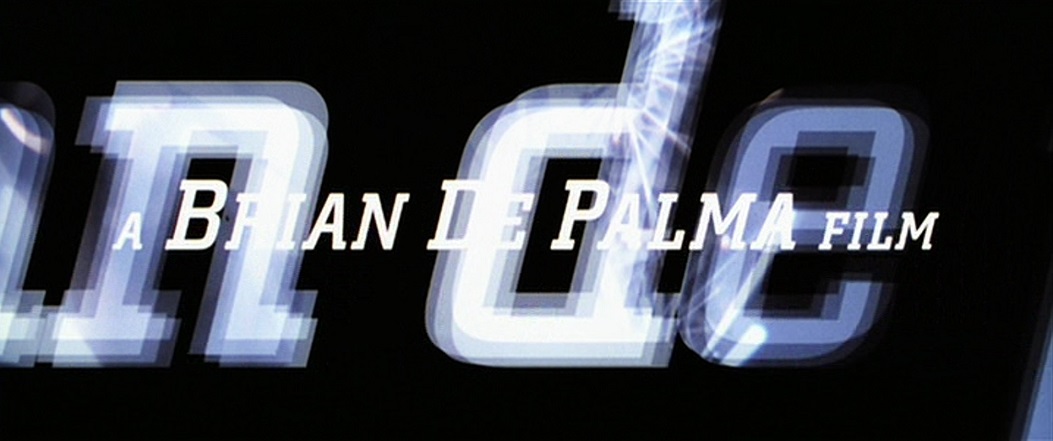WITH FILM, "WE ARE WORKING WITH SOMETHING THAT DEALS WITH THE UNCONSCIOUS, AND WE HAVE TO ALLOW THAT TO BE CUNNING"

In a Venice Q&A posted today by Deadline's Joe Utichi, Luca Guadagnino talks about the current state of cinema:
DEADLINE: You talked about finding common ground in your work. But the way you’ve explored this sense of otherness has been distinct each time. Are you purposefully seeking out new stones to turn over, even if they belong to the same garden?GUADAGNINO: I think the thing that most excites me as a filmmaker and a director is the possibility of fully exploring the craft, and really playing with the set of tools you have in your hands within the language of cinema. The more conscious I become about cinema, through the way I work and through learning the formal language of cinema in its many, many layers, it’s something that’s truly amazing.
I respect so much the work of filmmakers who repeat their same movie over and over again. It’s actually reassuring and beautiful to see that. But at the same time, that’s not who I am and how I am. I like the idea of trying things, as you said, to turn different stones in the same garden. I don’t know if the garden is my garden, the garden of my imagery, or what the great historian of cinema Georges Sadoul said in his seminal Histoire générale du cinema, Tome 1, which is that cinema is about human beings because it’s about telling the story of human beings. That might sound parochial, banal, or old-fashioned, again, but I think he was right. Even the most experimental work of Pat O’Neill, which I adore, or the great experience of the underground cinema in the ’60s and ’70s, still reflects on that.
DEADLINE: Equally banal, perhaps, but that idea that the universal can be found in the specific is something mainstream cinema often neglects.
GUADAGNINO: Every-size-fits-all is Walmart. Every-size-fits-all is an artificial concept that belongs to the practices of capitalism, and the execution of a dull idea of capital. A smart idea of capital comes with the notion of prototype; it comes with the idea of finding new territory in order to expand even more.
The reiteration of something that has been set in stone and repeated and repeated over and over again is a bad practice because it’s pollution. It’s the pollution of imageries, of the world, and it makes the environment less livable, and thus less consumable. It’s a strange contradiction.
Billy Wilder said that show business is show business because without business it’d be show show, which from his perspective was the greatest sin of all. I’m not sure I’m totally in agreement with Mr. Wilder. Still, let’s hold on that, because this is Deadline Hollywood. But at the same time, you have to make prototypes because you have to re-create again and again the possibility of excitement in the investment of an audience toward something truly new.
Even Top Gun: Maverick, which is a movie that trades very deeply with nostalgia and repetition, comes with the novelty of happening 25 years later. The idea that a sequel comes after a quarter of a century is, in its way, a very smart, intelligent, and thoughtful way of doing business. Because now, even if the movie holds very deep nostalgia in the audience—the nostalgic gaze of Tony Scott and the idea of the world in the way it was in 1986—you are there for the ride of Tom Cruise’s Maverick being a man now, not a boy. So, I would say there are always ways to create something that is surprising and interesting.
DEADLINE: And yet, the industry revels in its love of data.
GUADAGNINO: Yes, but we’re not working on parameters that are set in stone, like chemistry or physics or mathematics. We are working with something that deals with the unconscious, and we have to allow that to be cunning. If we trade in the unconscious for the algorithm of it all—whether it’s the algorithm itself or the expectations that come from it—that is where you fail. “You can’t do that because our data tells us the audience wants this.” Well, that way you would never have had The Godfather. You would never have had GoodFellas. You’d never even have had Mission: Impossible, the first movie by Brian De Palma.
And by the way, that’s true of The Godfather: Part II, and Part III, which I love. It’s my favorite of the three. I’m using this platform to say it: it’s a masterpiece. I go back to the Godfathers over and over, but I go back to Part III every six months. I wish I could have done a movie like that; it’s beautiful. Coppola is a forger of prototypes. Even now, with Megalopolis. He’s not doing it in a cheap way, he’s making a big movie out of it.
DEADLINE: The question is whether the industry that allowed for films like The Godfather and Apocalypse Now still exists, or whether the data is too powerful now.
GUADAGNINO: Probably not as a system, in the way the system worked back then. But definitely, it exists as individual personalities finding their own ways into the business. We have to see what happens and how things morph, and not be too disheartened by the present because there are new ways to find and be excited about.
That’s what I say to young filmmakers when they ask me how to break into filmmaking: just do it. And don’t allow anybody to let you down or lecture you about what to do and how to do it. Just do it. A filmmaker has to be a very obsessive person who must refuse to let people f*ck with him, her, or them. It’s a director’s medium.



